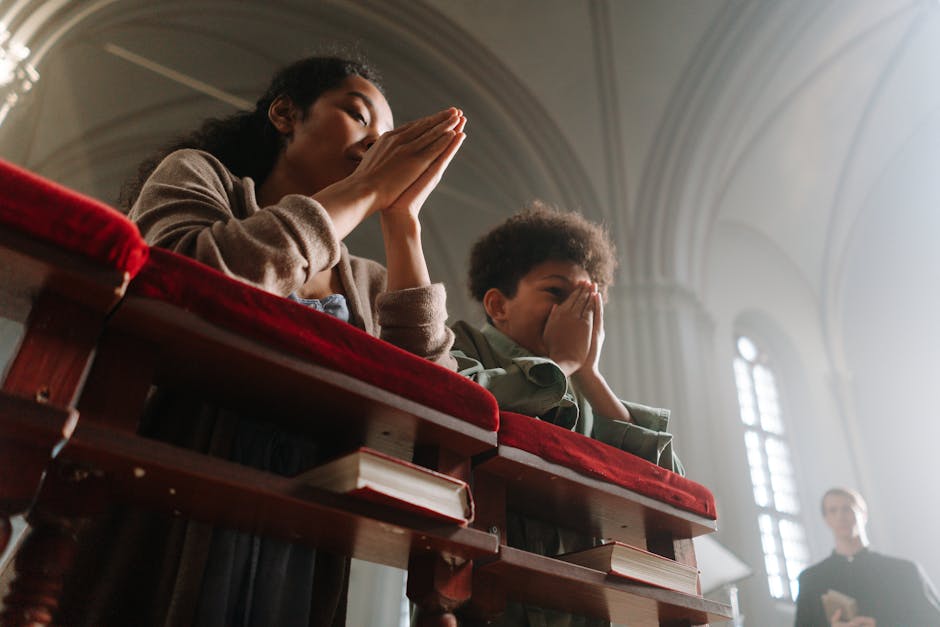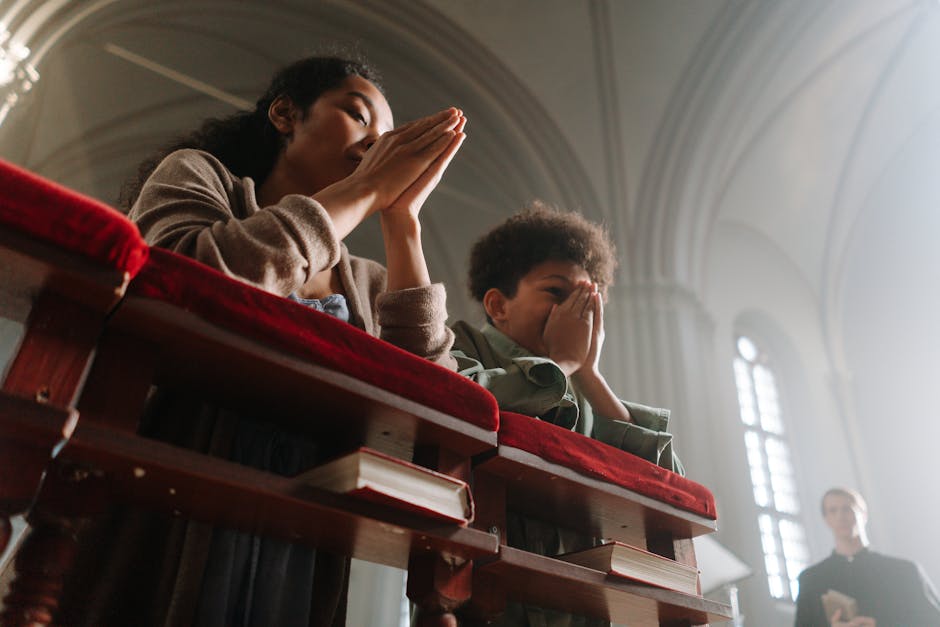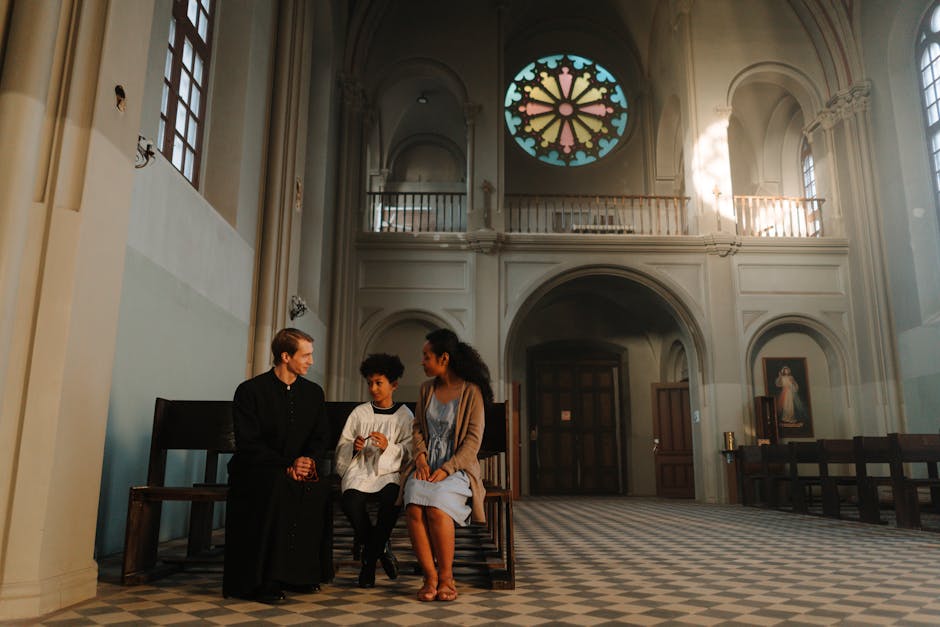The Catholic Conscience in the Public Square
Our faith calls us not to retreat from the world, but to engage it with discernment, compassion, and a resolute commitment to the dignity of every human person. In the complex arenas of culture, law, and social policy, Catholics are invited to be a leaven of hope and a voice for truth.
The challenge is to bring our faith into public life not as a political ideology, but as a framework for human flourishing. This requires a heart formed by prayer and a mind shaped by the virtues of prudence, justice, and mercy. We are called to build, to heal, and to defend the vulnerable, contributing to the common good with clarity and charity.
Prudence as a Public Virtue
In our fast-paced culture, it is easy to form snap judgments. The Church, however, offers a different model: one of careful and prayerful discernment. Consider, for example, the rigorous process the Vatican uses to investigate a person’s life for sainthood. A planned motion picture, centered on the cause for canonization of Pope John Paul II, illuminates this very method. The film intends to explore the role of the official once known as the “devil’s advocate,” a priest tasked with raising every possible objection and scrutinizing every piece of evidence to ensure the truth of a candidate’s heroic virtue.
This process is not an exercise in cynicism; it is an act of profound love for the truth. It serves as a powerful metaphor for our own engagement with the world. Before we speak on a complex issue, have we sought to understand all sides? Before we act, have we prayerfully considered the consequences? This spiritual and intellectual rigor protects us from sentimentality and ideology, grounding our public witness in reality. It is a holy patience that seeks not to win an argument, but to honor the truth.
Religion that is pure and undefiled before God and the Father is this: to visit orphans and widows in their affliction, and to keep oneself unstained from the world.
James 1:27
Mercy and Justice in Tension
Few issues test our capacity for principled engagement more than immigration. Here, the Church calls us to hold two fundamental truths in a delicate and necessary balance. First, every person is created in the image of God and possesses an inviolable dignity that does not disappear at a national border. Second, a just society has both the right and the responsibility to maintain secure borders for the sake of the common good.
Our bishops consistently remind us that these principles are not contradictory. A truly Catholic approach rejects simplistic solutions from any side, such as indiscriminate mass deportations that tear families apart or open borders that ignore the rule of law. Instead, it calls for a comprehensive and humane vision—one that creates pathways for legal status, respects the unity of the family, and treats every individual with charity. For the faithful in our parishes, this is not merely a policy debate. It is a catechetical imperative to accompany our immigrant brothers and sisters, to listen to their stories, and to see in them the face of Christ.
You shall not oppress a sojourner. You know the heart of a sojourner, for you were sojourners in the land of Egypt.
Exodus 23:9
Fostering a Culture of Life
The health of a society can be measured by how it cares for its most vulnerable members, especially its children. In the realm of foster care, the state and faith communities have a profound opportunity for collaboration. Recent policy initiatives aim to strengthen this partnership, recognizing that faith-based organizations and families of deep conviction are an invaluable resource for children in need.
The goal is simple and urgent: to ensure that more children can find a safe, stable, and loving home. This requires removing unnecessary obstacles that may prevent good-willed families from serving. When a family’s deeply held religious or moral beliefs about marriage and family become a barrier to them being deemed qualified to foster, it is the children who ultimately lose out on a potential home. Protecting the ability of faith-based groups to operate according to their missions is not about exclusion; it is about inclusion. It expands the network of care and honors the principle that the best interests of the child should always be the guiding star of our social policy.
A Practical Framework for Faithful Citizenship
Putting these principles into practice requires intentional effort. The following table offers a guide for translating Catholic social teaching into concrete actions in various spheres of life.
| Practice | Where to Apply | Why It Serves the Common Good | First Small Step |
|---|---|---|---|
| Prudent Discernment | Social media, family discussions, parish meetings | Prevents rash judgments and promotes decisions rooted in truth and charity. | Pause and pray for 30 seconds before responding to a provocative news story. |
| Merciful Dialogue | Civic conversations, workplace interactions | Builds bridges of understanding and reduces polarization. | Ask a clarifying question to someone you disagree with before stating your own view. |
| Upholding Dignity | Customer service interactions, business management | Affirms the God-given worth of every person, especially those in service roles. | Learn and use the name of the person stocking shelves or cleaning your office. |
| Welcoming the Stranger | Parish life, neighborhood associations | Lives out the Gospel call to hospitality and builds a more inclusive community. | Invite a family that is new to your parish or neighborhood over for a meal. |
| Protecting the Vulnerable | Volunteering, local advocacy, financial giving | Gives a voice to the voiceless and provides tangible support for those in need. | Research a local charity that serves children in the foster care system. |
An Examination of Conscience for Public Life
To deepen our commitment, we can reflect on our own habits and dispositions. Consider this checklist for personal growth in faithful citizenship:
- Engage in one conversation this week about a difficult topic with the primary goal of understanding the other person’s perspective, not of winning the argument.
- Identify one concrete way your parish, workplace, or family can be more tangibly welcoming to newcomers or those on the margins.
- Read a primary document from the Church on a social issue—such as an encyclical or a bishops’ statement—to better understand the nuances of Catholic teaching.
- Pray daily by name for one elected official, especially one with whom you have significant disagreements, asking that they be guided by wisdom and a concern for the common good.
- Learn one new fact about a pressing social need in your local community, such as the number of children in foster care or the challenges facing immigrant families.
A soft answer turns away wrath, but a harsh word stirs up anger.
Proverbs 15:1
Our call as Catholics is not to conquer the public square, but to sanctify it from within. Whether through art that explores the depths of holiness, advocacy that seeks justice for the newcomer, or policies that open more homes to children, our witness must be consistent. It must be a witness of hope, grounded in the unshakeable truth that every person is willed and loved by God. By engaging the world with a conscience formed by the Gospel, we can help build a society that is more just, more merciful, and more fully human.




